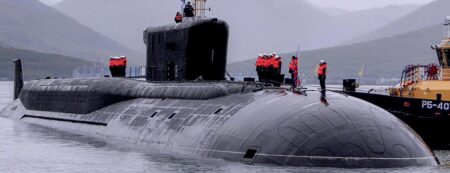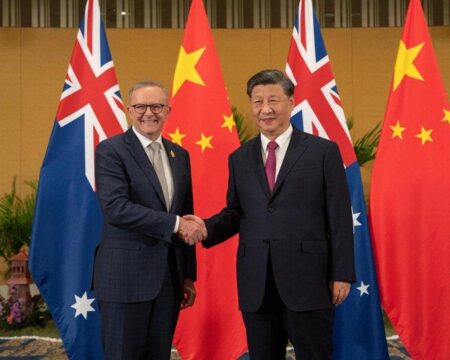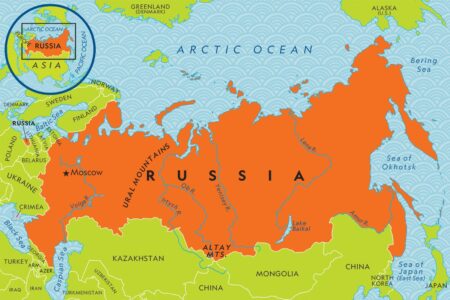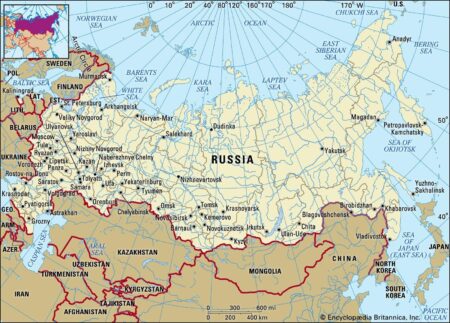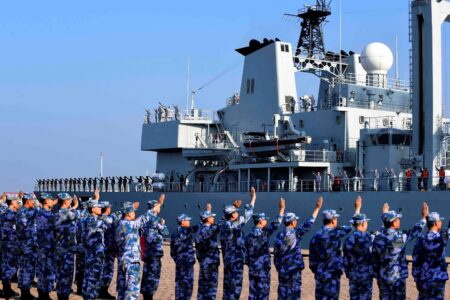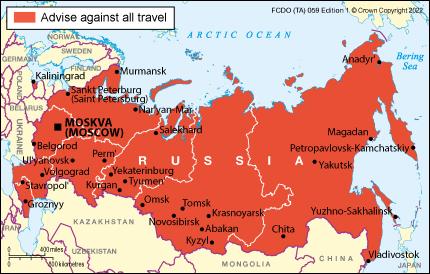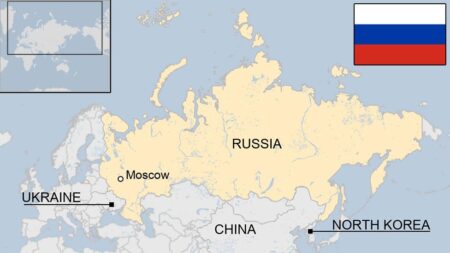Russian and Chinese submarines have embarked on their very first joint patrol, marking a bold new era of military partnership between the two powers amid rising geopolitical tensions, experts reveal
Browsing: military strategy
The Institute for the Study of War’s August 18, 2025 assessment highlights a dramatic surge in Russian offensive operations across eastern Ukraine, showcasing major strategic gains amid fierce resistance and evolving battlefield conditions
Spain boldly defies Trump’s defense demands and takes a strong stand on China, expertly steering through a complex web of alliances and economic interests as global tensions rise
The Institute for the Study of War released its latest Russian Offensive Campaign Assessment on August 5, 2025, highlighting persistent Russian advances amid fierce resistance and swiftly shifting frontlines in eastern Ukraine
Russia has delivered a sharp warning to the U.S., South Korea, and Japan over their plans to create a security alliance aimed at North Korea, calling the move dangerously destabilizing. The nation is urging all parties to focus on dialogue and peace efforts, NBC News reports
The US has reportedly pressed Australia to clearly define its stance should a conflict erupt over Taiwan, amid rising tensions with China. This appeal highlights Canberra’s delicate tightrope walk between maintaining strong ties with key allies and managing its complex relationship with Beijing
Russia has delivered a sharp warning to the US, South Korea, and Japan, condemning their plans to form a security alliance aimed at North Korea. Moscow calls these moves provocative and urges all sides to show restraint to maintain peace and stability in the region
As the U.S. considers a rapid military withdrawal from Europe, Russia could seize this chance to expand its influence, escalating regional tensions and putting NATO’s unified security at risk
China has dramatically increased its military activity with daring combat patrols near waters claimed by a U.S. ally, escalating tensions across the region. Captivating video footage captures these audacious moves, showcasing a sharp rise in assertiveness amid ongoing geopolitical conflicts
The International Institute for Strategic Studies highlights the crucial role of the Chagos Islands in the United Kingdom’s defense strategy, emphasizing their strategic position as a central hub for military operations and maintaining regional security throughout the Indian Ocean
Russia’s summer offensive in Ukraine has fallen short of expectations, making only limited progress on the battlefield. Yet, despite these challenges for Moscow, Kyiv remains alert and determined, knowing the fight is far from over
The U.S. Army is stepping up its game to counter Chinese threats, enhancing its capabilities and teaming up closely with joint forces, allies, and partners to protect regional stability and security, the Department of Defense announced
Ukraine is intensifying its diplomatic outreach across Africa, aiming to win vital support as its conflict with Russia continues. This bold campaign is designed to build strong political alliances and counter Russia’s expanding influence on the continent, Reuters reports
According to Ukraine intelligence, Russia is playing a key role in helping China develop strategies to counter US and NATO weaponry. This collaboration highlights a growing military alliance as global tensions continue to rise
Ukraine is intensifying its strikes on Russian airfields and war production facilities, landing powerful blows aimed at crippling Moscow’s military might, Al Jazeera reports. This unyielding campaign showcases Ukraine’s fierce determination and resilience amid the ongoing conflict
Belarusian opposition leader Sviatlana Tsikhanouskaya has delivered a striking warning: while Russia may attempt to use Belarus as a launchpad for an assault on the Baltic states, the people of Belarus remain resolutely opposed to backing any such aggression, Euronews reports
China has, for the first time ever, deployed two aircraft carriers simultaneously into the Western Pacific-a daring move that signals a significant boost in its naval strength amid rising regional tensions, USNI News reports
Japan has confirmed that, for the very first time, a Chinese aircraft carrier has boldly crossed east of Iwo Jima, signaling a dramatic shift in regional naval activity. This move underscores rising tensions in the East China Sea, Reuters reports
Germany is rapidly accelerating the construction of bomb shelters amid growing fears of a potential Russian attack. Officials emphasize enhanced civilian protection efforts as tensions escalate across Eastern Europe
A German leader delivers compelling reflections from D-Day, calling on former President Trump to champion unity and strength in the face of today’s deep divisions-an urgent message highlighted in a recent Atlantic Council analysis

